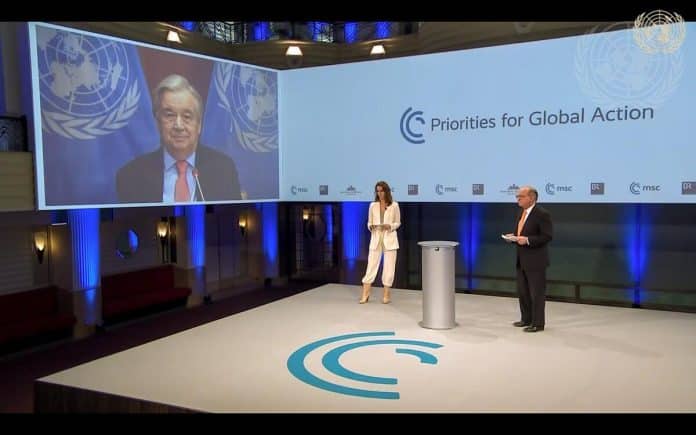The 59th edition of the Munich Security Conference (MSC) takes place this weekend, February 17-19, in Munich, Germany. With more than 700 expected participants, it is likely to be the largest ever such gathering.
Last year, the participants of the MSC had barely returned home from Munich, when Russia invaded Ukraine. As this year’s conference almost marks exactly one year since Russia’s 24 February invasion of Ukraine, the event will take stock of alliance cohesion and political commitment to the rules-based international order, its organisers state.
International gathering on security
For almost six decades, the MSC has been one of the central forums for international security, bringing together heads of state and high-level government officials from around the world as well as experts, diverse voices from international organisations, civil society, the private sector and the media.
United States Vice President Kamala Harris; French President Emmanuel Macron; German Chancellor Olaf Scholz; European Union Commission President Ursula von der Leyen; NATO Secretary General Jens Stoltenberg; the Executive Secretary of the UN Climate Change Secretariat Simon Stiell; UN High Commissioner for Refugees Filippo Grandi; WFP Executive Director David Beasley and WHO Director General Tedros Adhanom Ghebreyesus are among this year’s attendees.
MSC Chairman, Christoph Heusgen, former Permanent Representative of Germany to the United Nations and former foreign policy advisor to Chancellor Merkel, underlined the importance of the annual security conference.
Referring to the war in Ukraine, he said: “The threat posed most immediately to Europe is a reason to double down on dialogue”. The question of prosecution of possible war crimes in Ukraine has been put on the top of the agenda, according to Mr Heusgen. The event will therefore be attended by, among others, International Criminal Court Chief Prosecutor, Karim Khan.
Diverging world views
In its annual Munich Security Report, released on 13 February 2023, the conference organisers explore intensifying authoritarian revisionism and the growing contest between different visions for the international order. The report serves as a framework for the upcoming in-person conference on how the coalition defending the vision of a liberal, rules-based order can be enlarged and strengthened.
Concerning Ukraine, most of the world —measured according to GDP — has condemned Russia’s actions, according to data crunched by The Economist, the report notes. But countries that are neutral or Russia-leaning are home to most of the global population. The discrepancy speaks to a concentration of wealth that is a driver of divergent public opinion and policy decisions, the report finds.
MSC delegates will also discuss topics such as climate change and cyber security in Munich. Participants will address the relationship with countries in Africa, Latin America, South Asia and the Pacific region.

